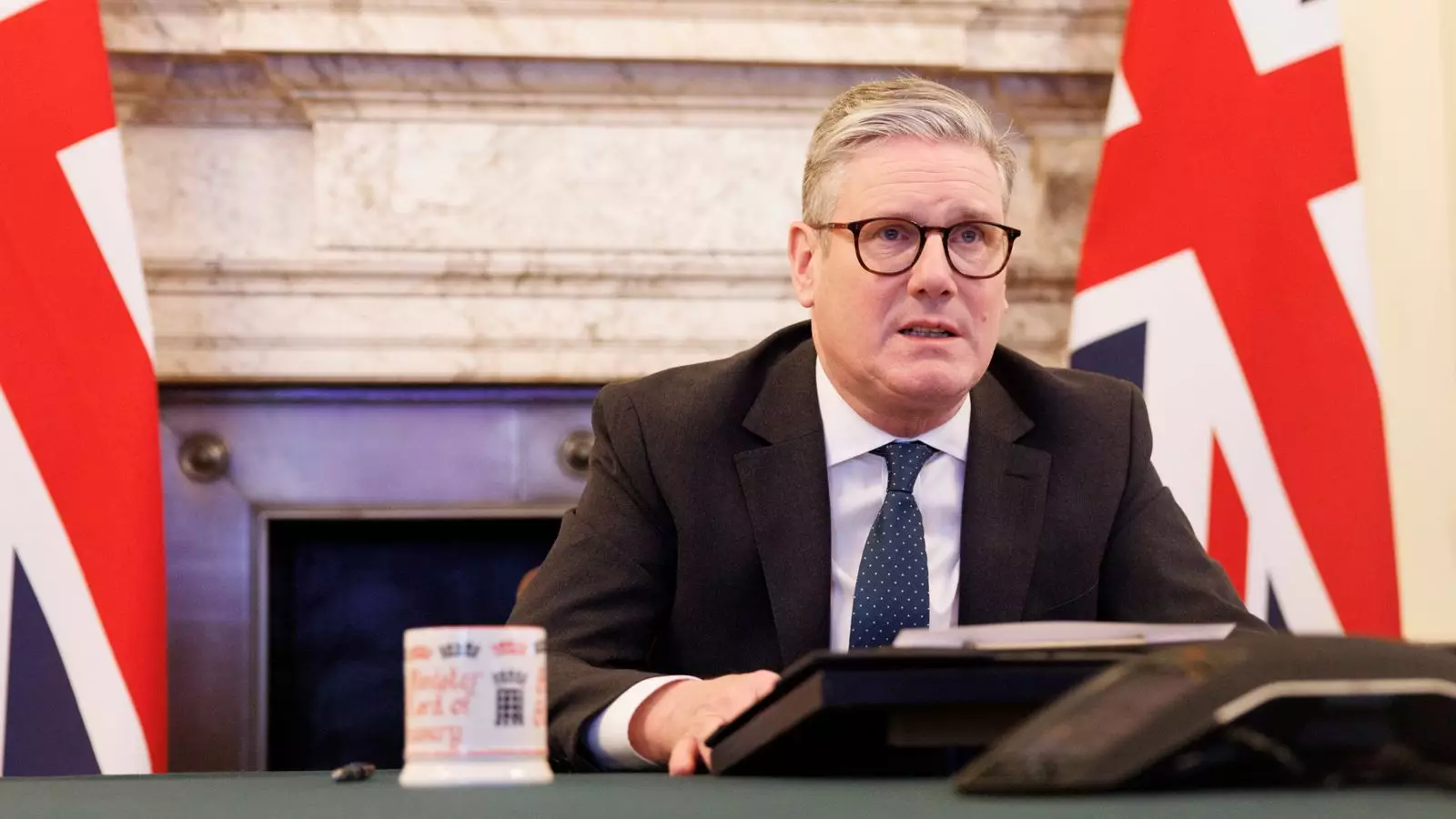As the world teeters on the brink of deeper conflict, Sir Keir Starmer’s virtual summit with global leaders symbolizes a crucial junction in addressing the Ukraine crisis. Starmer’s emphasis on “concrete commitments” resonates more than just a catchphrase; it is a dire call to action in a landscape where ambiguity only serves authoritarian ambitions. The stakes are monumental, and the necessity for a united front against Russian aggression cannot be overstated. With about 25 world leaders participating, this meeting is not just a diplomatic exercise—it represents a potential shift in the global approach to a war that has claimed far too many lives.
Military Aide: The Catalyst for Change
Military support for Ukraine must not wane; in fact, it should intensify. Starmer’s push for ramped-up military assistance fortifies the idea that a show of strength can deter further Russian incursions. The backing of Western nations, particularly from the UK and the US, is crucial. This is not just about aiding a nation under siege; it is about maintaining a world order that recognizes the sanctity of sovereignty and the importance of international law. Consider this: as long as the Ukrainian people face barbaric attacks, the idea of a peaceful resolution remains nothing more than a distant dream.
Allies must not merely join in military support; they must showcase their commitments through tangible actions. The term “coalition of the willing” coined by the Prime Minister implies a collective responsibility among democracies to stand firm against an aggressor. Yet, the real test is whether leaders are willing to translate rhetoric into a robust action plan. The expansion of military aid is not just a responsibility but a necessity for upholding democratic values and preserving human rights.
Economic Pressure: The Key to Compromise
Starmer pointedly communicates that the economic sanctions on Russia should be ramped up; this is a vital aspect of a dual strategy designed to address both immediate military logistics and the long-term goal of a sustainable peace. Economic pressure is paramount, as it can weaken the Kremlin’s war chest, forcing a reconsideration of its belligerent stance. Aligning with the notion that a failing economy can lead to political instability, applying stringent measures against Russian economic interests should be of utmost priority. The question that hangs in the air is whether Western nations have the resolve to withstand potential backlash for taking this stance.
The imperative is clear: let us not underestimate the power of unified economic sanctions and military support. This is a historical moment that demands decisiveness, and we cannot afford half-measures or delayed actions at such a critical juncture.
Putin’s Games and the Need for Global Unity
Putin’s attempts to delay any genuine ceasefire discussions reveal his strategy: an intricate web of manipulation, where time serves his autocratic ambitions. Starmer’s assertion that “the world needs to see action” is painfully relevant. Each moment wasted in empty negotiations is a moment that allows Russian aggression to fester unchallenged. The crux of the issue lies not only in a return to the negotiating table; it is about ensuring that such discussions are grounded in sincerity and accountability.
The reality is that Moscow’s list of demands—including territorial claims—must be categorically rejected if any long-lasting peace is to be established. True negotiations should not reward invaders for their aggressions but demand accountability and respect for international borders. This convoluted diplomatic game needs to be disrupted, requiring a coordinated effort from multiple allies to present a steadfast front.
The Future of Peacekeepers: A Strategic Positioning
In the event of a genuine ceasefire, the discussion of deploying peacekeepers becomes another litmus test for the international community. Sir Keir Starmer’s mention of potential British involvement in peacekeeping operations underlines a shift towards proactive engagement. However, the suggestion of a security “backstop” from Washington illustrates the complexities of such a commitment.
Imagine if properly coordinated, UK and US peacekeepers could effectively oversee a ceasefire agreement, ensuring that such a commitment holds. But will Washington deliver the necessary assurance? As the situation stands, unpredictability reigns, and the necessity for a robust security framework is evident. Allies must come to the table not just in verbal agreement, but in the form of actionable plans that demonstrate determination to stabilize Eastern Europe.
Ultimately, this unprecedented conflict invites the global community to reinforce its dedication to upholding democracy, human rights, and international law. The world has a profound moral obligation to act diligently and meet the challenge head-on.


Leave a Reply